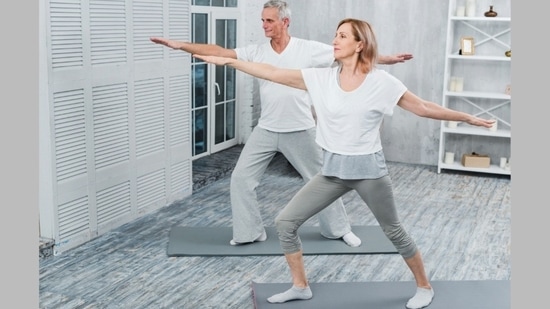
Balancing Yoga poses for your parents to improve coordination and prevent falls
7 months ago | 90 Views
Yoga is renowned for its numerous physical and mental health benefits, including improved flexibility, strength and stress reduction but one often overlooked advantage of regular Yoga practice is its ability to enhance balance and coordination, which can significantly reduce the risk of falls, especially in older adults. By incorporating balancing poses into your parents' Yoga routine, you can develop better body awareness, strengthen stabilising muscles and improve your overall sense of equilibrium.
Balancing Yoga Poses
In an interview with HT Lifestyle, Himalayan Siddhaa Akshar, Founder of Akshar Yoga Kendraa, suggested to incorporate the following poses into the senior citizens' Yoga practice to significantly improve their balance and coordination -
1. Tree Pose (Vrksasana):

This classic standing balance pose strengthens the legs, ankles, and core while improving focus. Begin by shifting your weight onto one foot, then place the sole of your other foot on your inner thigh or calf (avoid the knee). Bring your hands to your heart center or raise them overhead.
2. Warrior III (Virabhadrasana III):
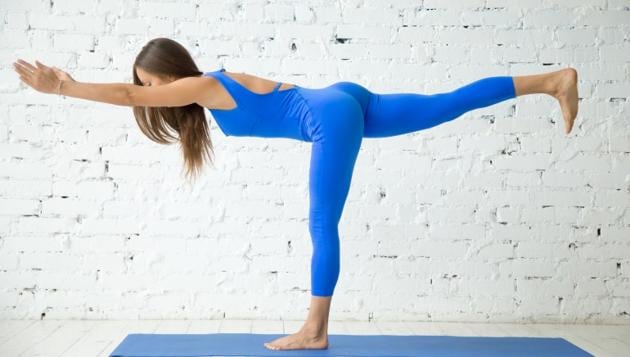
This challenging pose builds strength in the legs and core while improving balance. From a standing position, hinge forward at the hips, lifting one leg behind you as you bring your torso parallel to the floor. Extend your arms forward or alongside your body.
3. Half Moon Pose (Ardha Chandrasana):
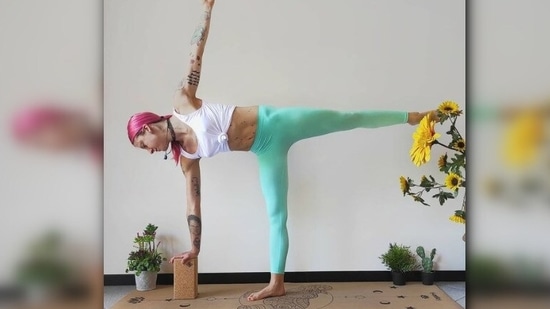
This pose strengthens the legs and core while opening the hips and chest. From a standing forward bend, place one hand on the floor and extend the opposite leg behind you, parallel to the floor. Rotate your chest open and extend your top arm toward the ceiling.
4. Eagle Pose (Garudasana):
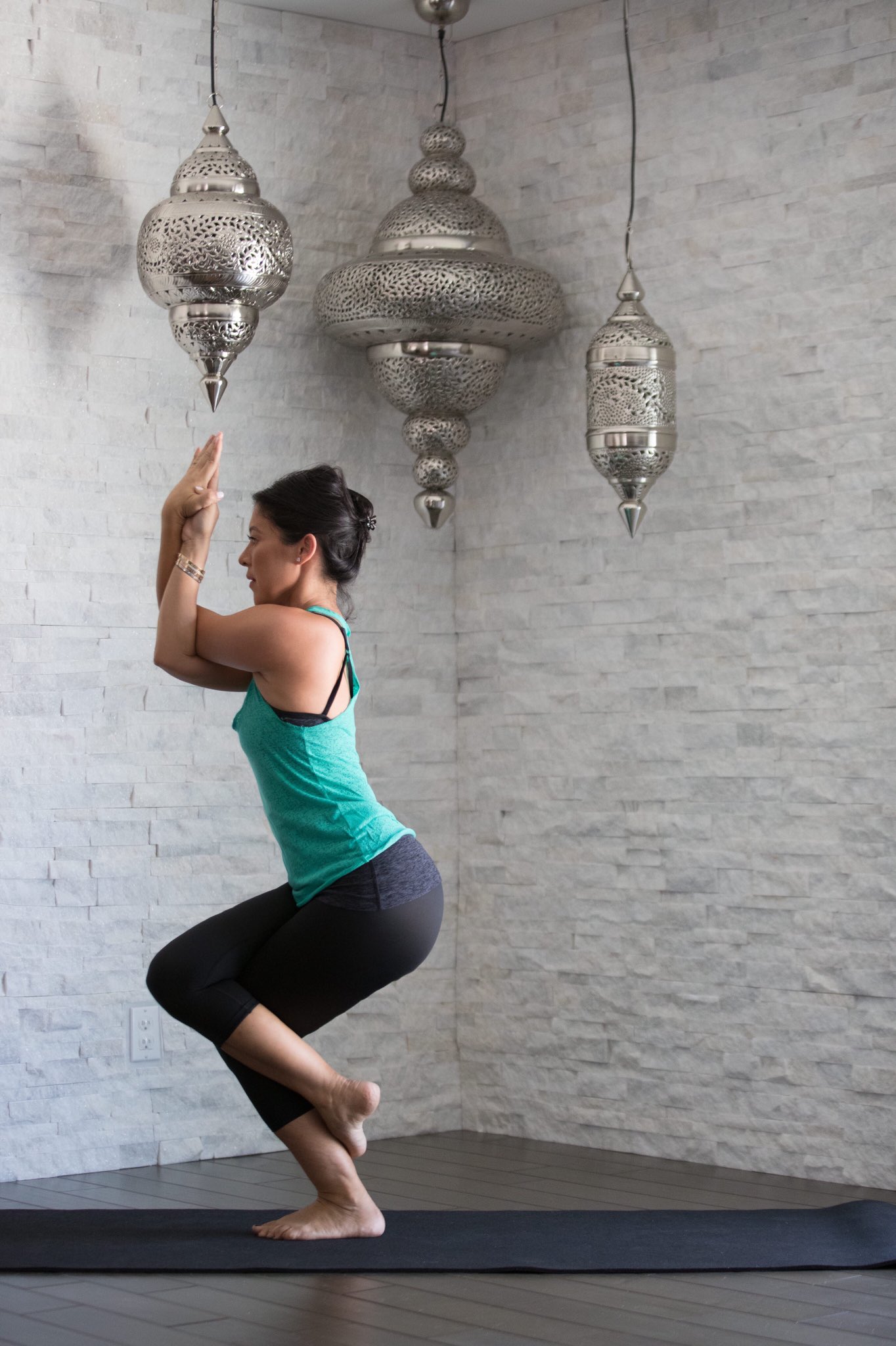
This twisting balance pose improves focus and strengthens the legs and core. From a standing position, cross one thigh over the other, then wrap the lower leg around the standing leg. Cross your arms in front of your chest, bringing the palms together if possible.
5. Chair Pose on One Leg (Eka Pada Utkatasana):
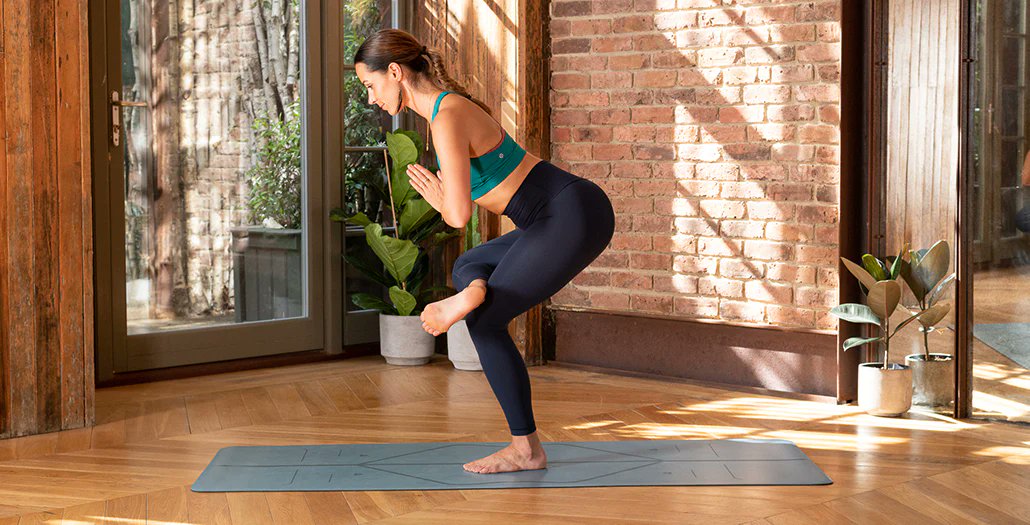
This variation of the traditional chair pose challenges your balance while strengthening the legs and core. From chair pose, slowly lift one foot off the ground, keeping your hips level and your standing leg bent.
Tips for Practicing Balancing Poses Safely
1. Start with easier variations and progress gradually
2. Use a wall or chair for support when needed
3. Focus your gaze on a fixed point to help maintain balance
4. Practice on both sides to promote symmetry and overall balance
5. Breathe steadily and deeply throughout each pose
6. Listen to your body and avoid pushing beyond your limits
Himalayan Siddhaa Akshar advised, “To reap the full benefits of balance training, aim to practice regularly. Even dedicating 10-15 minutes a day to balancing exercises can lead to significant improvements over time. As your balance improves, you'll likely notice enhanced coordination in various aspects of your life, from sports and fitness activities to everyday tasks.”
He concluded, “Remember that progress may be gradual and it's normal to wobble or lose your balance occasionally. The key is to remain patient and persistent in your practice. With time and dedication, you'll develop stronger muscles, better body awareness, and improved overall balance, reducing your risk of falls and enhancing your quality of life.”
#




















